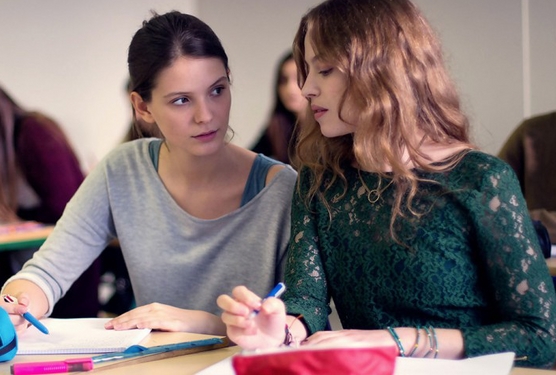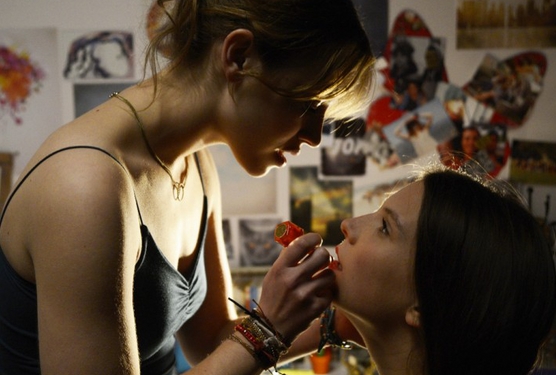Respire Mélanie Laurent

Actress-turned-director Mélanie Laurent takes a provocative stab at the coming-of-age thriller with an alternately sensitive and blistering adaptation of the Anne-Sophie Brasme novel Respire [Breathe] set in the south of France. Irrevocably falling victim to its own contrivances, the film precisely articulates its own obsessions in the set-up to the central relationship that ignites the day following a philosophical high school class discussion about passion in the impassive life of bookish introvert Charlie (Joséphine Japy). With ghostly cinematic echoes of "nothing but trouble and desire" from Hal Hartley's Simple Men (1992), pouty-lipped new student Sarah Perrin (Lou de Laâge) demurely slides into her assigned seat beside Charlie in math class as if she has just darted off a voluminous fashion show catwalk. An intense rapport is forced to blossom, which begins innocently in academia but swiftly progresses into the frequent sleepover.

Stylized flourishes detail the couple's contrasts, including a sensually dreamlike slo-mo shot from Charlie's point of view that recalls the pure infatuation that defined Mena Suvari's iconic pose in American Beauty (1999); but Laurent ultimately skirts by proper emotional beats in an effort to ratchet up the melodrama between the young women as if this were a short film. Admittedly, the determinedly narrow focus peaks in the second act with a restrained ambiguity that promises neither sexual awakening nor heated fallout; but the scales begin to tip once Sarah translates Charlie's social awkwardness and charity as acts of personal transgression and pity. The soundtrack subsequently rings with the piercing sound of tinnitus in Charlie's hyperventilation, as the film slips from the intriguing push-pull of attraction, sisterly care, and envy, into futile plotting that starkly reiterates theme while refusing to take a breather in terms of pacing.

If there's a shadow of François Ozon's satirical hand in the escalating tension and tone of the script, Michael Haneke comparisons are assuredly abound in the premeditated finale that seeks to reverse the dynamic and spin its revelation as a crime of passion instead of the reality of its blunt cry for relevance and singularity. When Laurent devotes her attention to the genuine unpredictability of emotions between Charlie and Sarah while paralleling Charlie's mother (Isabelle Carré)'s turbulent relationship with her father (Radivoje Bukvic), the film transcends its trite origins. Yet, too often are the generally authentic performances undercut by cold intention to defy Hollywood formula, reinforcing the pitfalls and inherent hypocrisy of extremism. In clumsy foreshadowing, Charlie's peers repeatedly say they "don't recognize her" due to her seeming inability to speak out against Sarah's scathing harassment, but it's really the narrative's regressive tendencies that deem Respire unrecognizable in the mass/mess of its contemporaries.
24 November, 2015 - 06:20 — Grant Phipps
